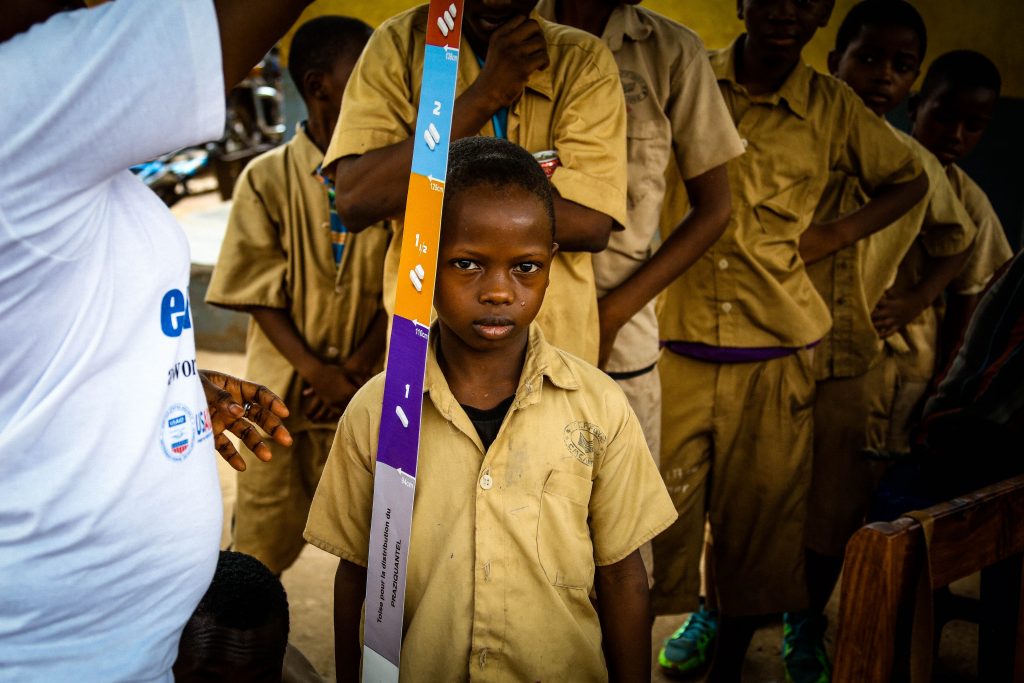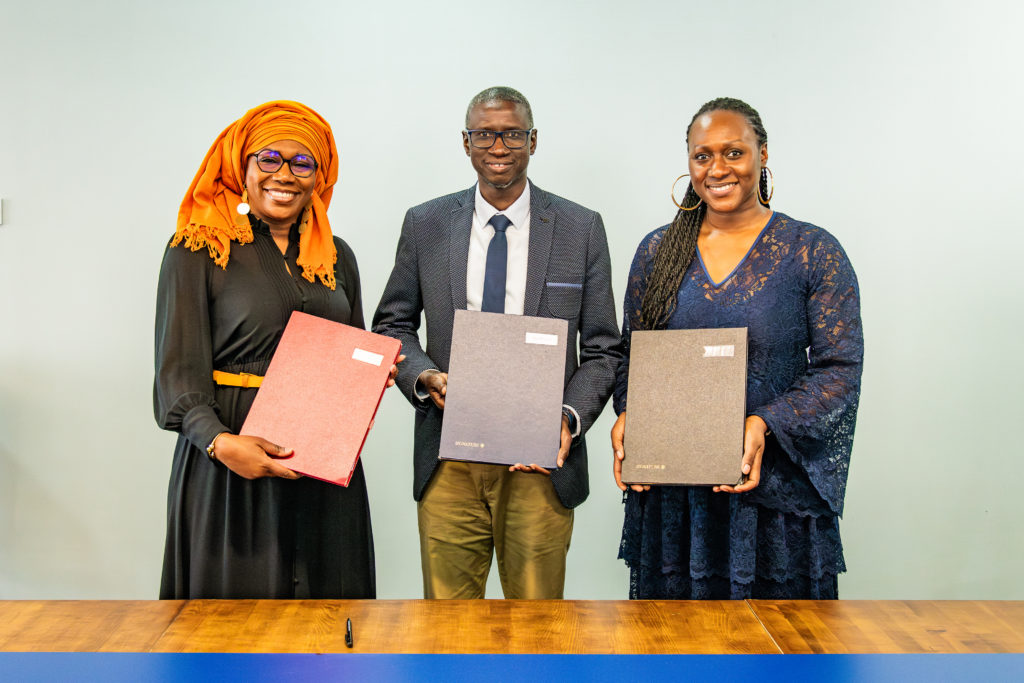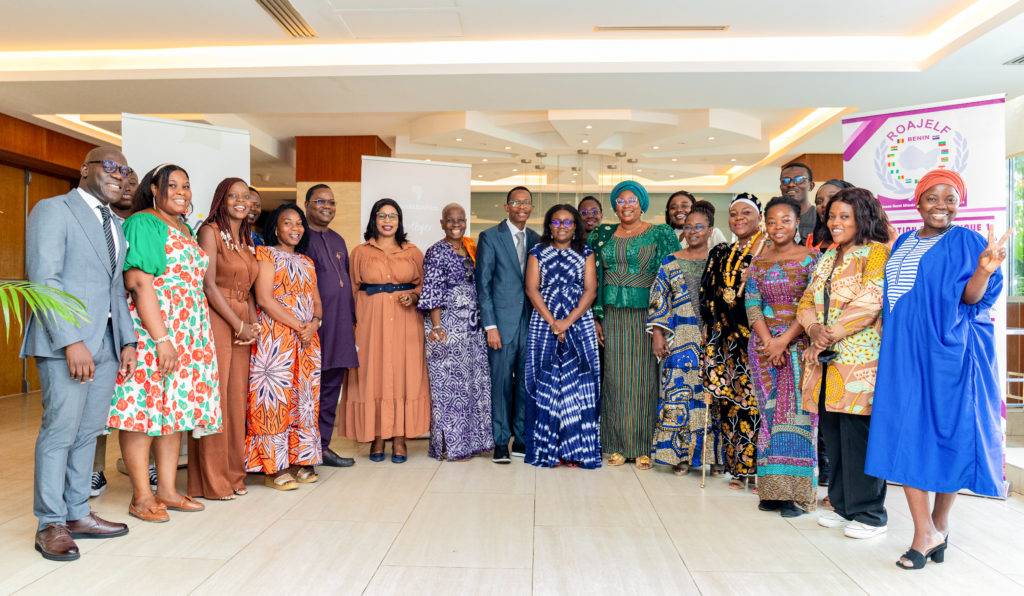Action towards Elimination: Regional Partnership Striving to Eliminate Neglected Tropical Diseases

Brazzaville, 8 February 2017
Fourteen countries set to finalize their Neglected Tropical Diseases (NTD) Annual Plans of Action with guidance from the World Health Organization’s Expanded Special Project on the Elimination of Neglected Tropical Diseases (ESPEN). ESPEN under Communicable Diseases Cluster leadership at the WHO Regional Office for Africa convened a two-day workshop with representatives of the national NTD programmes from Benin, Chad, Central African Republic, Comoros, Republic of Congo, Democratic Republic of Congo, Ethiopia, Guinea, Guinea Bissau, Nigeria, Sao Tome & Principe, South Sudan, Tanzania and Togo. Also participating at the workshop were representative of partners and donors- Bill and Melinda Gates Foundation (BMGF), END FUND, International Trachoma Initiative (ITI), Liverpool School of Tropical Medicine (LSTMH), Mectizan Donation Programme (MDP), RTI and USAID, as well as members of the Regional Programme Review Group (RPRG) and representative of the ESPEN Steering Committee.
At the opening of the two-day planning workshop that brought together representatives of national NTD programmes from 14 countries Dr Joseph Kaboré, Director of Programme Management, speaking on behalf of the Regional Director, WHO-AFRO, indicated the engagement of the RD to the success of ESPEN andmade the following comments; “To this end, I request the assistance and support of the NTD-RPRG members, who are liaison officers with participants’ countries, in order to achieve, by the end of this consultation, the development of relevant, realistic and achievable plans of action, to be implemented with the support of ESPEN, NTD-RPRG and many partners and donors who are also gathered here in support of this effort, taking into account the specific context of each country ».
The meeting was mainly used to orient countries on ESPEN framework, provide technical guidance and draft the 2017 plan of action and budget. The annual plans are drafted by NTD Country Programme managers in each country and are informed by the World Health Organization’s 2020 Roadmap, Regional NTD strategic plan 2014 – 2020, a comprehensive plan to control and eliminate some NTDs by 2020. As a next step, a consensus was reached to review the draft plan with in-country partners to prioritize and identify activities for possible ESPEN support and submit it within two weeks.
The fourteen priority countries discussed their roadmap to meet the ambitious but achievable targets outlined for their 2017 programmatic year. In order to meet their agreed 2020 goals, these 14 countries, like the rest of the NTD community, must address several broad challenges. Endemic countries expressed their need for additional human resources, robust systems and technical capacity to expand and scale up NTD prevention and control efforts, particularly as they work to integrate programmes focused on multiple diseases. Much of this work can take place with broader efforts to strengthen health systems. Investments in operational research and partnerships with the private sector can help programmes use resources as efficiently as possible to maximize the number of people reached. Improved data collection—including mapping, and monitoring and evaluation—is also required to guide programmes and enhance efficiency. Although drugs are critical tools, they are not enough to achieve all the 2020 NTD targets. The underlying causes of disease need to be addressed with cross-sector collaboration with the education, nutrition, and WASH communities. As a regional platform, ESPEN promotes the value of collaboration as partnerships with existing and new organizations can help overcome critical challenges.
“I have been energized by the demonstrable technical competence and dedication of the NTD country managers from across Africa. With leaders like these in place, I am certain that we will be able to meet our 2020 targets to control or eliminate NTDs across the continent,” said Dr. Magda Robalo, Director of Communicable Diseases Cluster at the WHO Regional Office for Africa at the closing of the workshop.
The meeting was organized in the context of the following background. More than one billion people are affected by NTDs globally. Forty percent of these are in Africa. Neglected Tropical Diseases disproportionately affect the most vulnerable people and the poorest communities and anchor a large proportion of African people in poverty. NTDs must be controlled and eliminated so as to contribute to the improvement of health and the reduction of grinding poverty. Because the impact of NTDs stretches far beyond the health sector, controlling and eliminating these diseases is critical to successfully improving the economic and social wellbeing of millions of people living in marginalized communities across Africa.
ESPEN was launched in 2016 by WHO as a five-year project to help African countries reduce the burden of NTDs by offering technical and financial assistance to ensure that countries reach every individual and community with essential NTD treatment, with a current focus in five NTDs that can be prevented, controlled and eliminated through the mass administration of medicines (MMA): Lymphatic filariasis, Onchocerciasis, Soil Transmitted Helminthiasis, Schistosomiasis and Trachoma. Through ESPEN, the African region has the opportunity to accelerate progress towards the elimination of these devastating diseases. By being nested inside WHO AFRO, ESPEN is uniquely placed to bring governments and the rest of the NTD community together around multilateral partnerships in the fight against NTDs.
Through innovative partnerships and collaborative efforts, the NTD community has made important strides. Yet, to achieve WHO’s 2020 goals, all stakeholders must continue to work to secure the increased resources and political will necessary to initiate and scale up programmes to close the remaining gaps.


